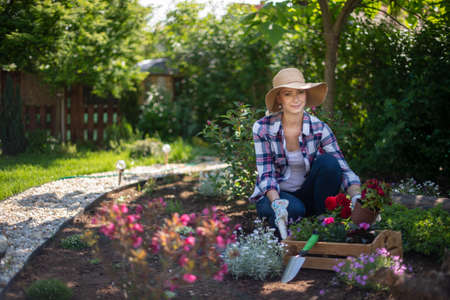Introduction to Over-the-Counter Pesticides in the UK
Over-the-counter (OTC) pesticides are widely available products that can be purchased by the general public without the need for a professional licence or specialised training. In the United Kingdom, these chemicals are regulated under strict legal frameworks to ensure public safety and environmental protection. Typically sold in garden centres, supermarkets, DIY stores, and online platforms, OTC pesticides encompass a range of substances designed to control insects, weeds, fungi, and other pests in both domestic and commercial environments.
British households commonly rely on OTC pesticides for managing garden pests, maintaining lawns, and tackling infestations within their homes. Small businesses—such as cafés with outdoor seating or local shops—may also use these products to uphold hygiene standards or preserve green spaces. However, it is important to recognise that not all pesticides are freely accessible; those considered particularly hazardous or requiring specialist application are restricted to certified professionals only. This distinction is crucial in understanding both the scope and limitations of what OTC solutions can achieve compared to professional interventions. As such, the role of regulation ensures that while convenience remains a priority for consumers, safety and efficacy are not compromised.
Regulatory Framework and Safety Standards
The regulation of over-the-counter (OTC) pesticides in the UK is underpinned by a robust legal framework designed to protect public health, the environment, and non-target species. The Health and Safety Executive (HSE) is the primary authority overseeing pesticide regulation, ensuring that all products available for domestic use meet stringent safety criteria before they reach the shelves. Unlike professional-grade pesticides—which require certified training and are subject to stricter controls—OTC products are specifically formulated and restricted in their potency and application scope to minimise risk when used by untrained individuals.
Key UK Pesticide Regulations
| Legislation/Guideline | Main Provisions | Applicability |
|---|---|---|
| Pesticides Regulation (EC) No 1107/2009 | Approval process for active substances; sets maximum residue limits. | All pesticide products, including OTC and professional use. |
| Plant Protection Products (Sustainable Use) Regulations 2012 | Promotes integrated pest management; restricts sale/use of certain chemicals. | Commercial and amateur users. |
| Control of Pesticides Regulations (COPR) 1986 | Product registration; safe labelling; user instructions. | All pesticide products sold in the UK. |
| The Code of Practice for Using Plant Protection Products | Sets out best practices for storage, application, and disposal. | Agricultural, amenity, and home garden users. |
Safety Guidelines for Over-the-Counter Pesticides
UK regulations stipulate that OTC pesticides must have clear labelling with detailed usage instructions, safety precautions, first aid information, and environmental hazard warnings. In recent years, government initiatives have further tightened restrictions on certain active ingredients due to concerns over pollinator health and watercourse contamination. For example, neonicotinoids have been largely withdrawn from amateur market products. Additionally, retailers are required to provide point-of-sale advice to consumers to promote responsible use and proper disposal.
Recent Government Initiatives
- Targeted Education Campaigns: Increasing public awareness about risks associated with improper use of garden pesticides.
- Sustainable Use Promotion: Encouraging integrated pest management (IPM) approaches among home gardeners.
- Enhanced Monitoring: Expanding surveillance of pesticide residues in food and the environment.
- Tighter Restrictions: Phasing out high-risk chemicals from general sale where safer alternatives exist.
The Role of Professional Application
This regulatory landscape highlights why certain pest problems demand professional intervention: experts not only have access to more potent solutions but are also rigorously trained in compliance with safety standards. Ultimately, while OTC pesticides can offer convenience, their regulatory limitations reinforce the importance of professional expertise for complex or large-scale infestations.
![]()
3. Limitations of Non-Professional Pesticide Use
When considering the use of over-the-counter (OTC) pesticides in the UK, it is essential to recognise both the practical and legal limitations that non-professional users face. While these products are readily available at garden centres and DIY stores, their efficacy, safe usage, and environmental impact are subject to significant constraints compared to those employed by certified professionals.
Efficacy Challenges
One of the most prominent issues with OTC pesticides is their reduced effectiveness. Products accessible to the general public are formulated with lower concentrations of active ingredients due to regulatory restrictions. This means that, while they may offer short-term relief against common pests, they often fail to address severe or persistent infestations effectively. Furthermore, improper application—such as incorrect dosages or targeting the wrong pest species—can significantly diminish results, leading to frustration and repeated treatments.
Risks of Misuse
The risk of misuse is considerably higher among non-professional users. Without in-depth knowledge of integrated pest management principles or proper handling techniques, individuals may inadvertently apply pesticides in a manner that poses health risks to themselves, their families, pets, or wildlife. There is also a danger of developing pesticide resistance among targeted pests if products are applied too frequently or incorrectly, making future control efforts even more challenging.
Environmental Concerns
Environmental stewardship is a critical aspect of modern pesticide regulation in the UK. Non-professional use can inadvertently contribute to pollution through runoff into watercourses or contamination of non-target plants and beneficial insects such as bees and butterflies. Many users lack access to advanced application equipment and training that professionals possess, increasing the likelihood of drift and unintended exposure.
Legal Restrictions
The UK has stringent regulations governing who can purchase and use certain classes of pesticides. Non-professional products must be labelled for amateur use, and it is illegal for private individuals to use professional-grade chemicals without appropriate certification. Breaching these regulations can result in fines or prosecution under legislation such as the Plant Protection Products (Sustainable Use) Regulations 2012.
A Need for Awareness
Ultimately, understanding these limitations highlights why seeking professional advice or services is often the most responsible course of action for tackling complex or large-scale pest issues. Professionals bring not only expertise but also access to more effective tools and methods that comply with current UK safety standards and environmental best practices.
4. Value and Expertise of Professional Pest Control
When considering the management of pests in the UK, the value that professional pest controllers bring extends well beyond simple application of products. Their expertise is grounded in rigorous training, nationally recognised accreditations, and a deep understanding of both pest biology and safe, effective control strategies in line with UK legislation.
Professional Training and Qualifications
Unlike general consumers, professionals undergo comprehensive training programmes covering pest identification, behaviour, and advanced control techniques. In the UK, reputable pest controllers will often hold certifications such as those from the British Pest Control Association (BPCA) or the Royal Society for Public Health (RSPH). These bodies set standards for knowledge and practice that far exceed what is required to purchase or use over-the-counter pesticides.
| Qualification/Accreditation | Description | UK Standard/Body |
|---|---|---|
| BPCA Certified Technician | Comprehensive training in all aspects of pest management including health & safety, pesticide use, and environmental protection. | British Pest Control Association |
| RSPH Level 2 Award in Pest Management | A recognised qualification focusing on pest identification, biology, and appropriate control methods. | Royal Society for Public Health |
| CPD Memberships | Continuous professional development through courses and seminars to keep up with legislative changes and new techniques. | BASIS PROMPT Register, BPCA |
Specialist Knowledge and Regulatory Compliance
Professional pest controllers are adept at risk assessments, understanding local authority regulations, and ensuring the safe use of chemicals—particularly important given restrictions under the UK’s Control of Pesticides Regulations (COPR) and Biocidal Products Regulation (BPR). Their specialist knowledge allows them to select targeted treatments, minimising harm to non-target species and reducing environmental impact.
Why Expertise Matters: Key Advantages Over DIY Approaches
- Correct Identification: Misidentification by untrained individuals can lead to ineffective treatments or unnecessary use of chemicals.
- Safe Handling: Professionals are trained to handle hazardous substances responsibly, preventing accidental harm to people, pets, or wildlife.
- Bespoke Solutions: Tailored treatment plans address specific infestations rather than generic ‘one-size-fits-all’ solutions offered by off-the-shelf products.
- Legal Assurance: Professional services ensure compliance with UK laws on pesticide use—important for businesses seeking audit trails and legal protection.
The Bottom Line
The combination of structured training, ongoing professional development, regulatory awareness, and practical experience makes UK pest control professionals uniquely qualified. This expertise delivers not only effective results but also assurance of safety and legal compliance—key factors that clearly distinguish their service from over-the-counter alternatives.
5. Case Studies: When DIY Goes Wrong
Despite the wide availability of over-the-counter (OTC) pesticides in the UK, there are numerous instances where these products have proven insufficient or even detrimental. Examining real-life scenarios provides valuable insights into the limitations of DIY pest control and underscores when professional intervention becomes not just beneficial, but essential.
Analysis of Real-Life Incidents
Consider a typical suburban home in Surrey, where a family attempted to tackle a persistent bedbug infestation using readily available sprays from their local garden centre. The initial application seemed promising, but within weeks, the infestation rebounded—this time more aggressively. The OTC product failed to reach insects hidden deep within crevices and furniture, leading to increased resistance and a wider spread throughout the house. Ultimately, the family incurred greater expense and distress before seeking help from a certified pest controller who employed targeted heat treatment and professional-grade insecticides.
Mistaken Identity and Misapplication
In another instance from Manchester, a homeowner misidentified woodworm in antique furniture as a common household beetle. Trusting the advice on an OTC pesticide label, they applied a general insect spray that neither addressed the larvae nor penetrated the timber effectively. This misjudgement not only failed to resolve the problem but also risked structural damage to valuable furnishings. A specialist’s intervention was necessary to assess the infestation accurately and apply appropriate conservation techniques.
Environmental and Health Consequences
Misuse of OTC pesticides can have broader implications beyond ineffective pest control. In rural Kent, excessive application of slug pellets by an enthusiastic gardener resulted in contamination of nearby water sources, affecting amphibian populations and drawing attention from local environmental authorities. Professionals would have assessed the garden’s ecosystem holistically and recommended safer integrated pest management strategies, balancing efficacy with environmental stewardship.
The Value of Professional Assessment
These case studies highlight common pitfalls: incomplete eradication due to product limitations, incorrect identification of pests, accidental harm to non-target species, and health risks from improper use. Qualified professionals bring expertise in diagnosis, access to regulated treatments unavailable over the counter, and comprehensive strategies tailored to each situation. Their involvement ensures not just effective pest removal but also long-term prevention and safety for households and communities across the UK.
6. Best Practice Advice for UK Consumers
Guidance for Evaluating Pest Control Options
For British consumers facing pest issues, the first step is to accurately identify the problem and understand its scale. Take time to research the type of pest, its habits, and the potential impact on your home or garden. Evaluate whether the infestation is minor—potentially manageable with over-the-counter solutions—or if it shows signs of being more widespread or persistent, which may require professional intervention.
Responsible Use of DIY Pesticide Products
If you choose to use shop-bought pesticides, always follow label instructions carefully. Only purchase products authorised by the Health and Safety Executive (HSE), as these have been rigorously tested for safety and effectiveness in the UK context. Apply the minimum necessary amount, avoid repeat treatments unless specified, and never mix different chemicals. Ensure children and pets are kept away from treated areas, and dispose of containers responsibly at designated local authority sites.
Environmental Considerations
Many UK pests can be managed through non-chemical means such as improved hygiene, sealing entry points, or using physical traps. Consider these options before reaching for pesticides to minimise environmental harm. Be aware that indiscriminate use of chemical treatments can adversely affect pollinators and local wildlife.
Recognising When to Consult a Professional
There are clear indicators that professional pest control is warranted: when infestations persist despite repeated DIY efforts, when dealing with regulated species (such as protected birds or bats), or if hazardous pests like wasps’ nests or bedbugs are present. Professionals are trained in safe application, possess access to specialist products unavailable to the public, and understand legal restrictions relevant to UK homes and businesses. Seeking expert help not only ensures effective eradication but also reduces risks to health, property, and the environment.
Summary for UK Households
The responsible British consumer weighs up all available options before acting. By understanding the limits of over-the-counter pesticides and knowing when to call in qualified professionals, you can protect your property efficiently while upholding high standards of safety and environmental stewardship.


